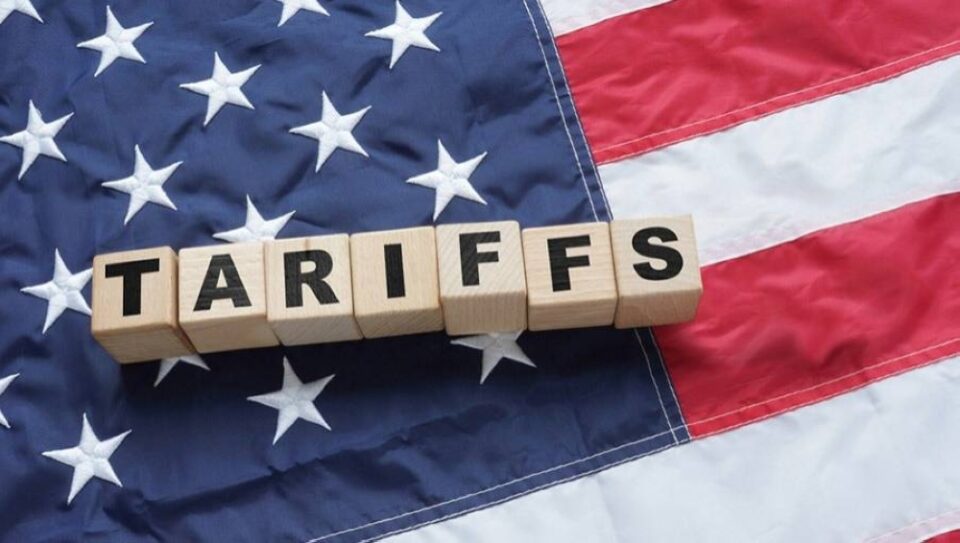-With the announcement by US President Donald Trump that a new policy of reciprocal tariffs will be implemented, aiming to impose duties on countries that place taxes or tariffs on US goods, concerns have grown about the potential escalation of trade disputes globally. This could lead to reciprocal tariff impositions between the United States and other countries, increasing the cost of goods for consumers and threatening global economic stability.This move is part of the principle of reciprocity, with Trump administration emphasizing that the new policy is meant to ensure fair trade and restore balance in economic relations between the US and its trade partners.President Trump explained that countries with a Value Added Tax (VAT) system will be treated as if they are imposing tariffs, which will result in similar duties on their exports to the US.The US president also pointed out that the measures would involve prohibiting trade practices that harm the US economy unfairly, along with imposing compensatory tariffs on countries offering government support to their exports, negatively affecting US products in global markets.Experts are watching the implications of this decision on global trade, with expectations that it may exacerbate trade disputes and alter the international trading system. Some have cautioned that the new tariff policy could significantly impact emerging economies like Brazil and Thailand, which impose higher tariffs to protect their local economies.Jeremy Bigg, an international trade consultant, told Qatar News Agency (QNA) that this policy could create major disruptions in global trade, as it is likely to provoke retaliatory actions from affected countries, further escalating trade disputes on a global scale.Bigg further added that the shift in US trade policy may prompt many countries to reassess their economic ties with Washington, potentially bringing about major changes in the global trade system.He also noted that while the reciprocity principle aims to achieve trade balance and protect domestic industries, as well as being a negotiating tool to pressure other nations to reduce restrictions and tariffs, it faces three main challenges. First, the risk of rising trade tensions, as applying this principle could spark trade wars if other countries impose higher or similar tariffs, as Canada recently did.The second challenge is that these tariffs could lead to higher prices for imported goods, impacting both consumers and businesses involved in imports. The third challenge is the strain on international relations, as this approach could ultimately cause a deterioration in economic relations between the U.S. and its traditional allies.Shawki Mahdi, an economist and analyst based in Canada, stated that the move announced by US President Donald Trump doesn't mark a significant change in the administration's economic strategy. He pointed out that similar decisions were made during Trump's first term, such as imposing tariffs on China in 2018, which led to higher costs for goods imported from China to the US.Mahdi added in a statement to QNA that this new policy could increase production costs for US companies relying on imported materials, which may lead to higher consumer prices and impact inflation rates.He predicted that the current policies would fail to attract foreign companies to set up production lines in the US at this time, due to geopolitical risks surrounding the current administration's policy. Mahdi also noted that companies will be closely monitoring global economic shifts and US policy changes before making any long-term investment decisions.In this context, the US administration has instructed the State Department, Department of Commerce, Treasury Department, and US Trade Representative's office to prepare recommendations for implementing the policy, which could take effect by April.These measures are expected to include a comprehensive review of the US major trading partners, including European Union, India, and Brazil, to identify discrepancies in tariffs and other trade barriers. This would then lead to imposing reciprocal tariffs based on the results of the review.Trade experts believe this could represent a major shift in the US global trade approach. The US may abandon the World Trade Organization's ‘Most-Favored Nation’ Treatment principle, which requires all member countries to be treated with equal tariffs.Experts predict the US may move toward bilateral negotiations, imposing tariffs tailored to each country. This could reshape the global trade system that has been in place since the General Agreement on Tariffs and Trade (GATT) was established.Europe is expected to be among the hardest-hit by this policy, as some European countries impose higher tariffs on US imports than the US imposes on European goods.Analysts have noted that this decision is part of a broader shift in US policy toward Europe, which includes scaling back commitments to NATO and reassessing transatlantic economic relations.India is likely to play a key role in the first phase of this policy, as it is one of the countries that imposes high tariffs on US goods, prompting the US to focus on these practices. Meetings between US and Indian officials are expected in the coming days to discuss ways to avoid new tariffs on Indian exports to the USRegarding the US economy, economists believe these tariffs could raise the prices of imported goods, potentially worsening the inflation problem, which has been rising again. However, the US administration believes this policy will encourage foreign companies to relocate their operations to the US to avoid tariffs, thereby creating more job opportunities and boosting the domestic economy.In the financial markets, US stock indices saw notable fluctuations following the announcement of these measures. The Dow Jones Industrial Average rose by 343 points, and Nasdaq increased by 1.5%, indicating investor optimism that this policy may be used more as a negotiating tool than as a direct step toward a full-scale trade war.As the implementation of these tariffs draws nearer, investors and analysts are closely watching the next steps the US administration will take. Expectations are that these measures will escalate trade tensions with several key US partners, potentially leading to widespread impacts on the global economy.
